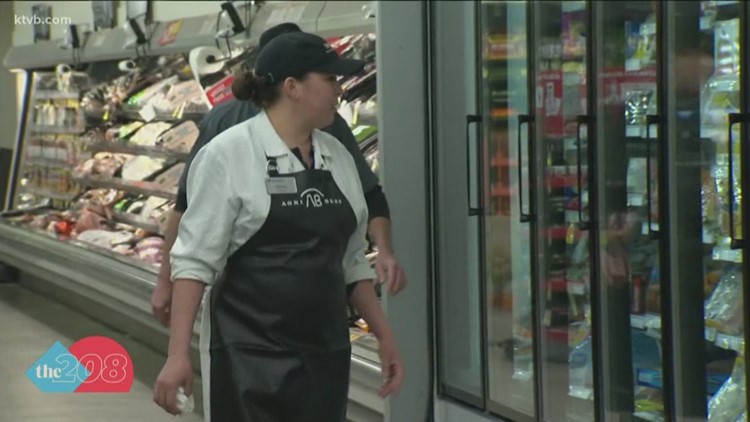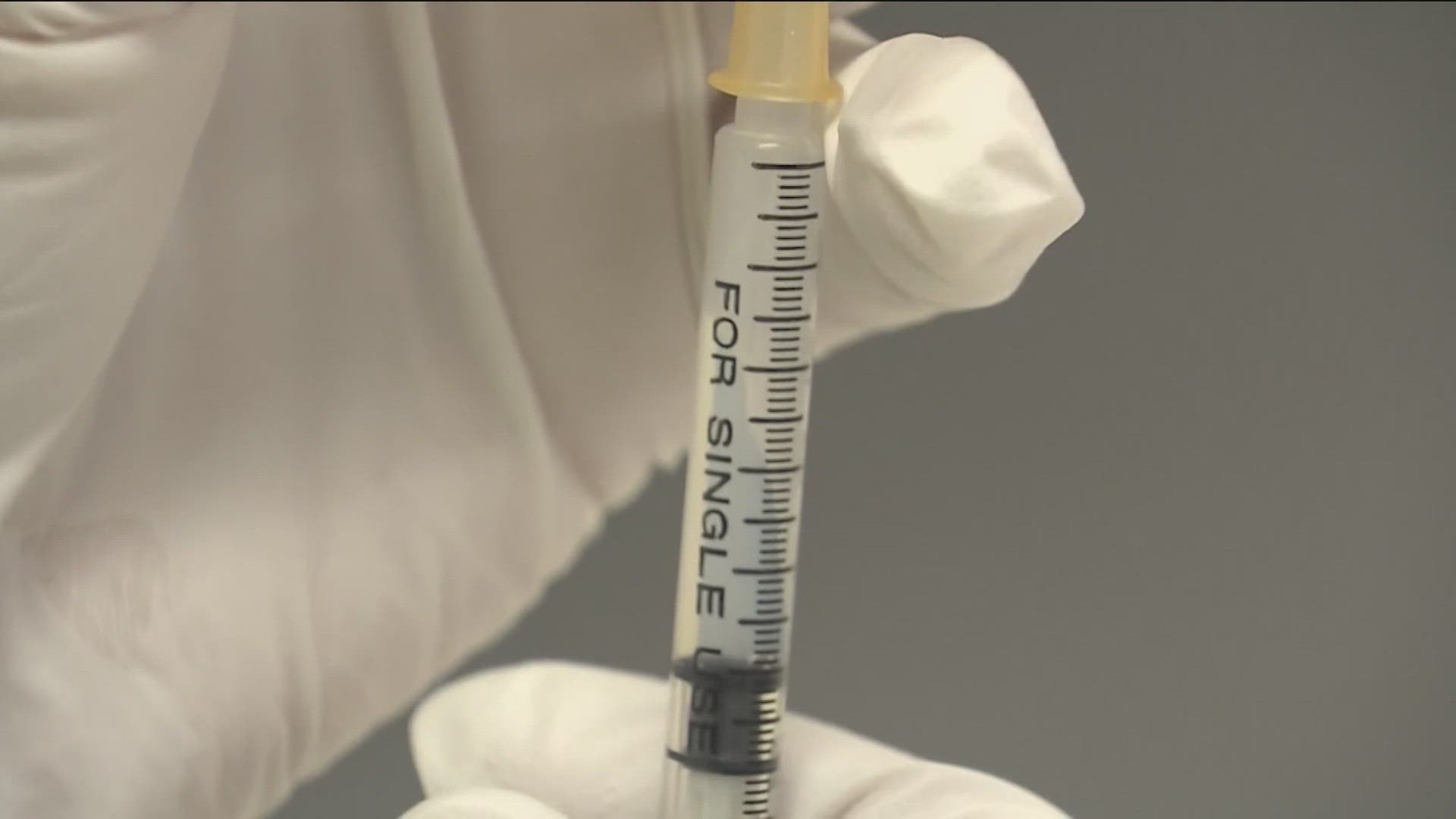BOISE, Idaho — As many aspects of American life shut down to slow the spread of COVID-19, tens of thousands of jobs have sprung up in essential retail stores to keep the shelves stocked.
Day in and day out, employees in grocery stores, pharmacies and big-box chains such as Walmart and Target are serving swarms of customers trying to stock up on essentials. These workers have been classified as essential employees alongside first responders and health care providers but without the benefits of personal protection equipment.
United Food & Commercial Workers International Union of Idaho, the union that represents workers at Albertsons and other commercial food processors and stores throughout the state, is advocating for more protections for grocery store workers. Union President John Caldwell said he has been advocating for workers to be provided personal protective equipment such as masks and gloves to protect them from potential illness.
“Anything is better than nothing,” Caldwell said. “I mean, you don’t want to be wearing a bandanna across your face looking like a cowboy coming in and robbing the place or something, but some kind of protection has got to be put in place. We have parents we take care of at home that are elderly.”
According to his payroll numbers from Albertsons, the grocery company has hired or rehired at least 100 people statewide in recent weeks to keep up with demand, and more hires are expected. Albertsons is seeking to hire 30,000 new employees companywide.
The company has installed other protective measures, like plexiglass shields between the cashier and customer at registers, increased cleaning and markings in the store to remind customers to remain 6 feet apart. Workers also have been offered a $2 an hour raise during the crisis, overtime is available and any employee diagnosed with COVID-19 will be given two weeks of paid leave.
“Our associates are truly the people to thank for keeping our stores and pharmacies operating to provide an essential service for our customers and the communities we serve,” company spokeswoman Kathy Holland said in an email.
The extra pay for grocery store employees is a plus, but Caldwell said he is still concerned that the higher wages will keep ill workers coming into the store because they need income.
“It’s a gratitude for doing what they’re doing, but it’s still kind of enticing people to come to work sick,” he said. “What I’ve been telling our people is you see somebody sick, report them. Get them out of there.”
Albertsons is not the only employer changing things up during the pandemic. Walmart, in the next three to four weeks, will be begin scanning all employees’ temperatures when they report to work, anyone with a temperature higher than 100 degrees will be sent home. Masks and gloves will be available in the next two weeks for any associates who would like them, according to a company press release.
As the disease spreads and more people are out of work, retail stores are pushing for more new employees than ever. Walmart announced in March it intends to hire 150,000 people by the end of May nationwide, with 900 of those employees in Idaho. WinCo Foods and Frey Meyer have also put out the call for workers.
Rep. John Gannon, D-Boise, sent a letter to Gov. Brad Little requesting stores be required to implement protective measures in Idaho stores such as plexiglass barriers, masks and gloves to employees and protections for workers with preexisting conditions from being fired.
“As this virus spreads, it’s just more likely people are going to have the virus and not even know it and give it to the clerk and the clerk isn’t going to know it for four, five or six days and then, you know,” he said.
Just because jobs are available in grocery stores doesn’t mean everyone out of work can take them. Chelsea Biggers, a Boise resident, has chronic health conditions that make her susceptible to the virus. She has been looking online for work, but the only jobs she sees listed are to work in grocery stores or other places where she could possibly fall ill.
“I don’t dare leave the house at all,” she said. “I’m seeing mostly the grocery store clerk kind of stuff. Everything call center-related got taken up right away or they’re higher-up positions, so it’s all internal hiring.”
Biggers’ husband suffers heavily from two kinds of asthma, also leaving him susceptible to health complications with COVID-19. He lost his job working for tech company Taos Mountain but is now supporting the couple doing janitorial work in a warehouse on a contract basis. Biggers said she is concerned about him being around so many people, but that he spends all of his time cleaning and is forced to maintain social distancing while he works to make her feel better.
Biggers and her husband might have an income for now, but there are still looming questions of how they will get by as the crisis stretches on.
“I understand there are a lot of programs to keep people from getting evicted and pay their bills, but trying to get the extra money now to pay rent you already couldn’t pay when you were paycheck to paycheck is difficult,” she said. “I’m scared of what this means long term for our finances.”
If you enjoy reading articles like this one from our partners at the Idaho Press, please consider subscribing to them for newspaper delivery or digital access to help ensure stories like this are told.
More from our partners at The Idaho Press: Breaking Chains Academy aims to end the cycle of gang violence
Facts not fear: More on coronavirus
See our latest updates in our YouTube playlist:
At KTVB, we’re focusing our news coverage on the facts and not the fear around the virus. To see our full coverage, visit our coronavirus section, here: www.ktvb.com/coronavirus



